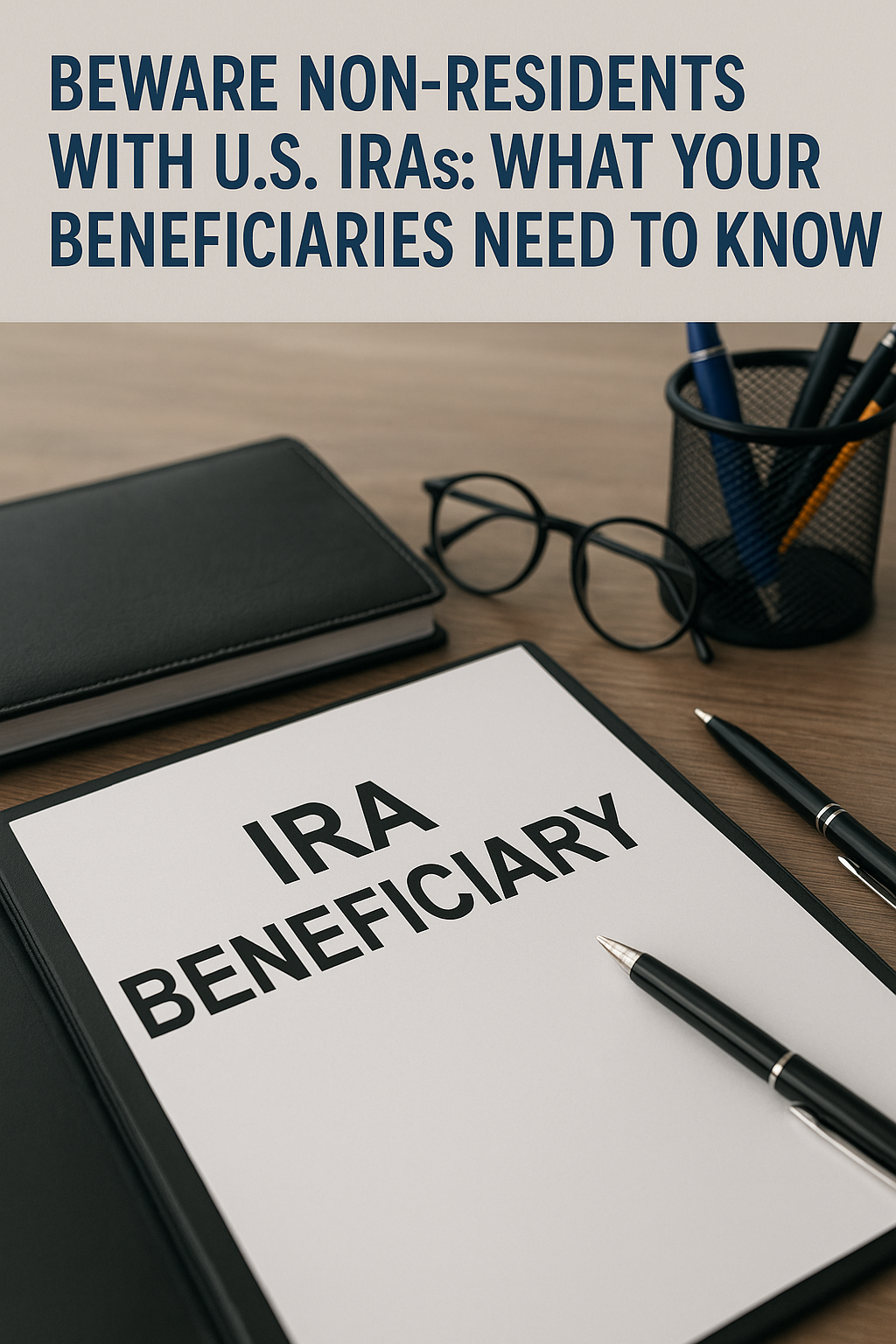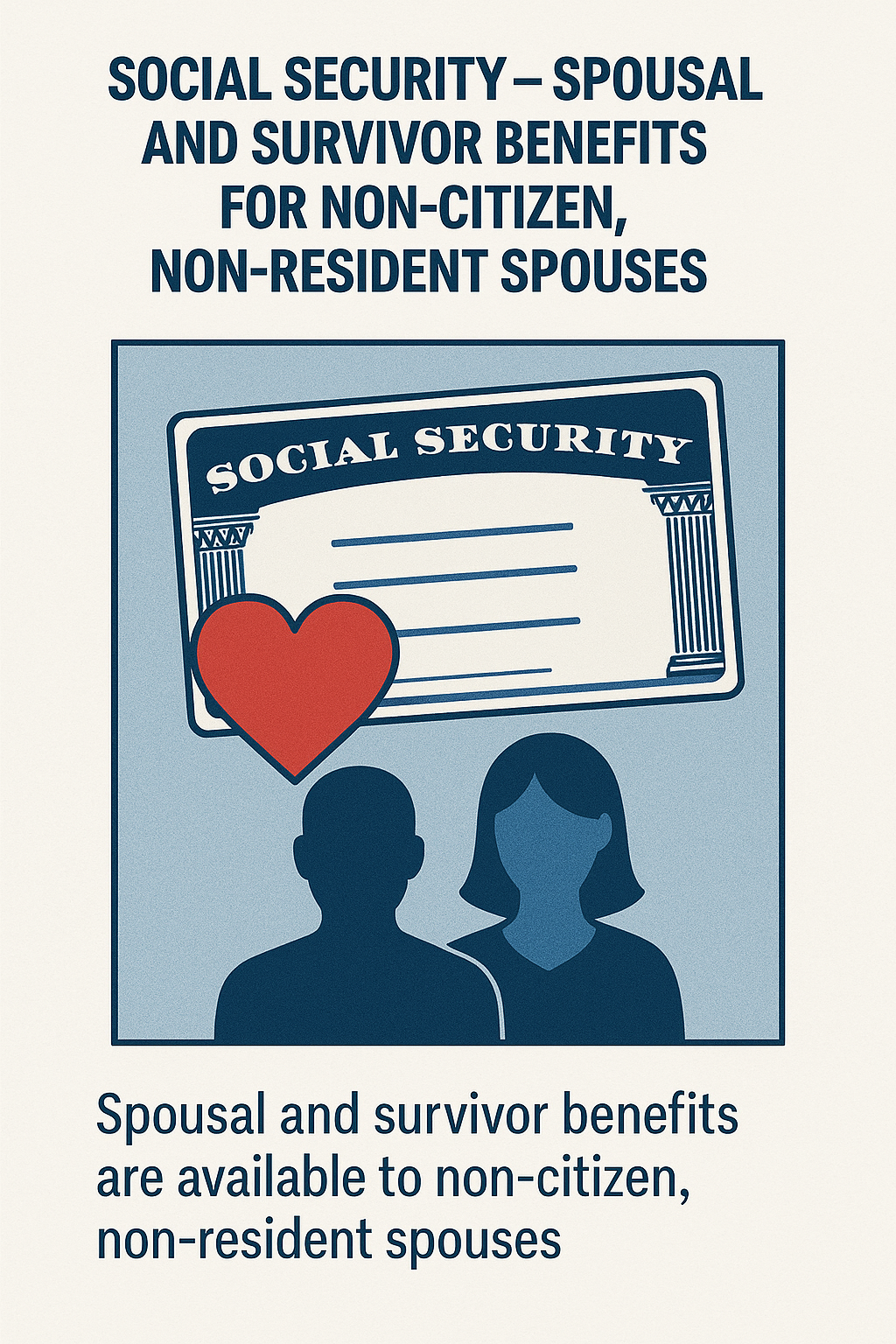New Bill Offers Medicare Relief for Cross-Border Retirees
How the Medicare Economic Security Solutions Act Could Help U.S. Citizens Living Abroad
A new bill introduced in Congress, The Medicare Economic Security Solutions Act, may finally offer long-awaited relief to one of the most overlooked groups in retirement planning: U.S. citizens who delay Medicare enrollment due to living abroad.
For the estimated 700,000 Americans affected, including many cross-border retirees living in Canada, the bill could eliminate harsh lifetime penalties for not enrolling in Medicare Parts B and D when first eligible. While this is welcome news for those on fixed incomes, the legislation also raises questions about long-term Medicare funding and policy direction.
The Medicare Penalty Problem: A Cross-Border Perspective
Under current rules, Americans who delay enrollment in Medicare Part B (medical insurance) and Part D (prescription drug coverage) are penalized, 10% of the monthly premium for every 12-month period they were eligible but didn’t enroll in Part D, and 1% per month of delay for Part D. These penalties are permanent, compounding the cost of healthcare coverage for the rest of a retiree’s life.
This policy was originally designed to discourage people from delaying enrollment and only signing up when they become sick. But it fails to consider one important group: retired Americans living outside the U.S., who often don’t enroll in Medicare because they rarely use the U.S. healthcare system, if at all.
Many U.S. citizens retire to Canada or move there for family or lifestyle reasons and instead use Canadian provincial healthcare. However, life has a way of changing course. Some of these retirees eventually return to the U.S. to be closer to family, to receive specialized care, or simply to relocate.
When they do, they’re shocked to find that they’re locked into lifetime Medicare penalties, even though they never used the system while living abroad.
What the New Bill Proposes
The Medicare Economic Security Solutions Act seeks to modernize the system by waiving late enrollment penalties for those who:
- Had employer-sponsored COBRA coverage,
- Have retiree coverage, or
- Are covered by VA benefits.
Periods of active employer-sponsored coverage are already exempt from the penalty.
Most applicable to cross-border retirees returning from abroad are the provisions that cap the penalty at 15% and limit its application to a period of double the amount of time the enrollee went without coverage while they were eligible.
The bill would give these individuals a second chance to sign up for Medicare without as much financial punishment, potentially saving them thousands of dollars in lifetime premiums.
For cross-border retirees with moderate to high incomes, the savings could be even more meaningful. That’s because Medicare premiums are means-tested. The higher your income, the more you pay. Combine that with the 10% annual delay penalty, which is based on the average premium you would have paid had you been enrolled in the system, and your Part B premium could double or worse over time.
| Full Part B Coverage | |||
| Beneficiaries who file individual tax returns with modified adjusted gross income: | Beneficiaries who file joint tax returns with modified adjusted gross income: | Income-Related Monthly Adjustment Amount | Total Monthly Premium Amount |
| Less than or equal to $106,000 | Less than or equal to $212,000 | $0.00 | $185.00 |
| Greater than $106,000 and less than or equal to $133,000 | Greater than $212,000 and less than or equal to $266,000 | 74.00 | 259.00 |
| Greater than $133,000 and less than or equal to $167,000 | Greater than $266,000 and less than or equal to $334,000 | 185.00 | 370.00 |
| Greater than $167,000 and less than or equal to $200,000 | Greater than $334,000 and less than or equal to $400,000 | 295.90 | 480.90 |
| Greater than $200,000 and less than $500,000 | Greater than $400,000 and less than $750,000 | 406.90 | 591.90 |
| Greater than or equal to $500,000 | Greater than or equal to $750,000 | 443.90 | 628.90 |
| Beneficiaries who file individual tax returns with modified adjusted gross income: | Beneficiaries who file joint tax returns with modified adjusted gross income: | Income-related monthly adjustment amount |
| Less than or equal to $106,000 | Less than or equal to $212,000 | $0.00 |
| Greater than $106,000 and less than or equal to $133,000 | Greater than $212,000 and less than or equal to $266,000 | 13.70 |
| Greater than $133,000 and less than or equal to $167,000 | Greater than $266,000 and less than or equal to $334,000 | 35.30 |
| Greater than $167,000 and less than or equal to $200,000 | Greater than $334,000 and less than or equal to $400,000 | 57.00 |
| Greater than $200,000 and less than $500,000 | Greater than $400,000 and less than $750,000 | 78.60 |
| Greater than or equal to $500,000 | Greater than or equal to $750,000 | 85.80 |
A Win for Retirees, But a Challenge for Medicare’s Future?
The bill would be a lifeline for expats and returning retirees, but it doesn’t come without trade-offs. Eliminating the penalty for this group would reduce Medicare’s revenue at a time when the system is already facing sustainability concerns.
Critics warn that fewer penalty payments may accelerate the depletion of Medicare trust funds, requiring future tax hikes or benefit cuts to keep the program solvent. Supporters argue that it’s a matter of fairness—why should someone be penalized for not enrolling in a service they couldn’t use while living abroad?
What Cross-Border Retirees Should Do Now
If you’re currently living in Canada, or planning a move abroad in retirement, it’s important to understand the implications of Medicare timing decisions. While this new bill offers hope, it is not yet law. For now, the current late enrollment penalties still apply.
This new legislation highlights why cross-border planning should begin years before retirement. Policies change. Lives change. And the right guidance can make all the difference between an avoidable penalty and a well-planned relocation.
The Medicare Economic Security Solutions Act is a promising development for Americans who retire abroad, but it’s also a reminder of the delicate balance between fairness and funding in national programs. For cross-border retirees, this is more than a policy, it can be something that weighs on their budget forever.
At 49th Parallel Wealth Management, we work with clients navigating the complexities of cross-border retirement, including Medicare planning, provincial healthcare coordination, tax optimization, investment management, and financial projections.
Want to explore how this bill (and others like it) could impact your retirement planning?
Contact us at 49th Parallel Wealth Management for a personalized cross-border consultation.




